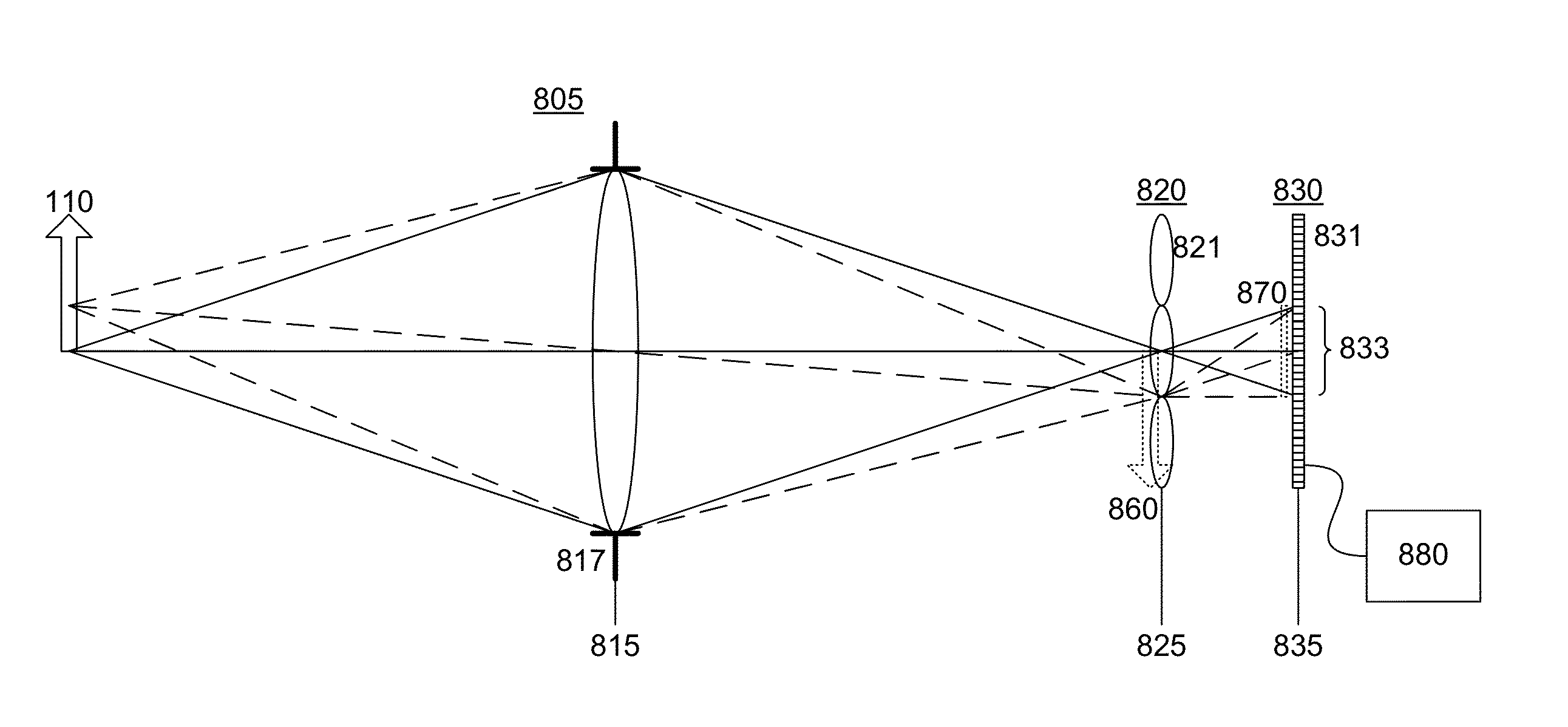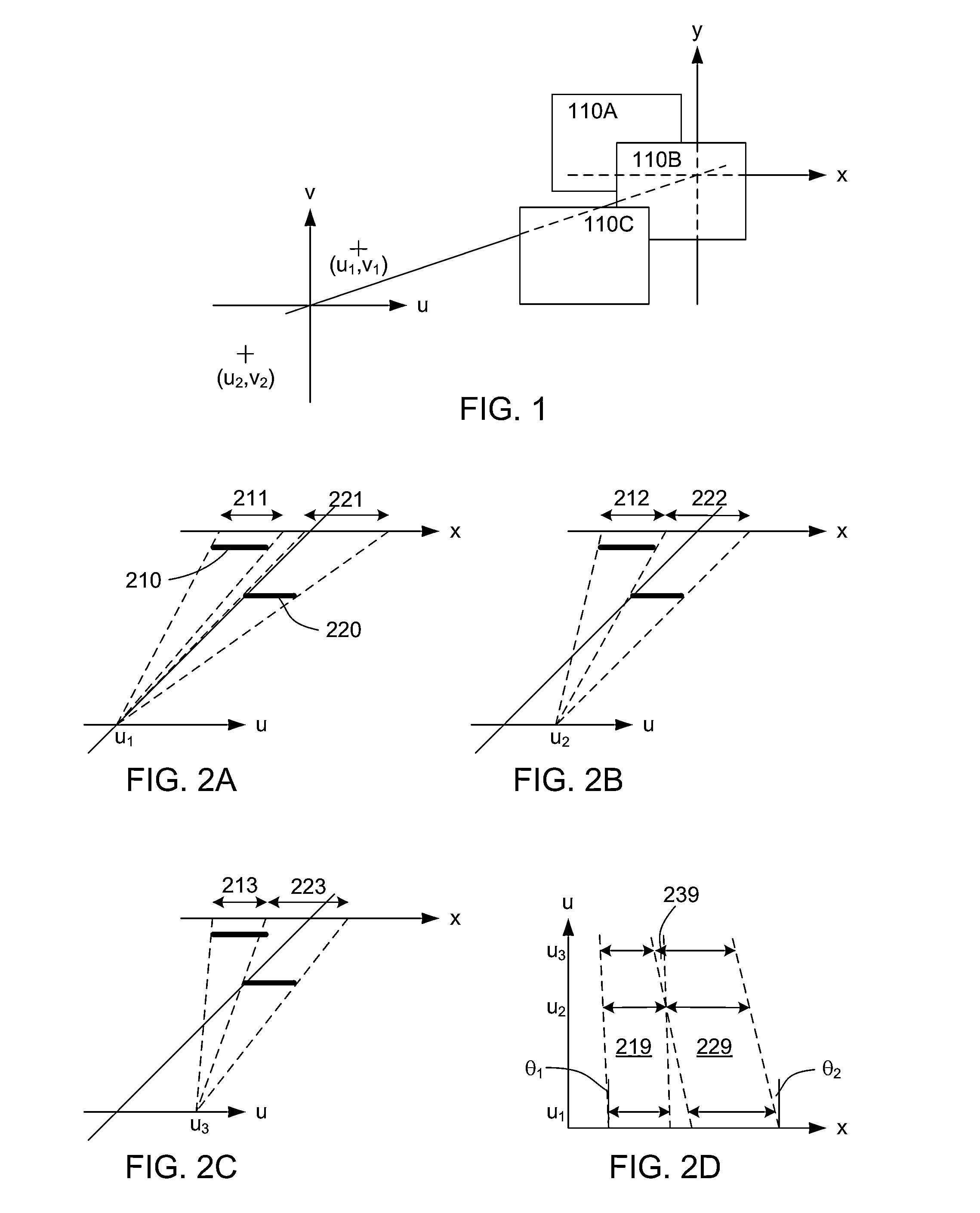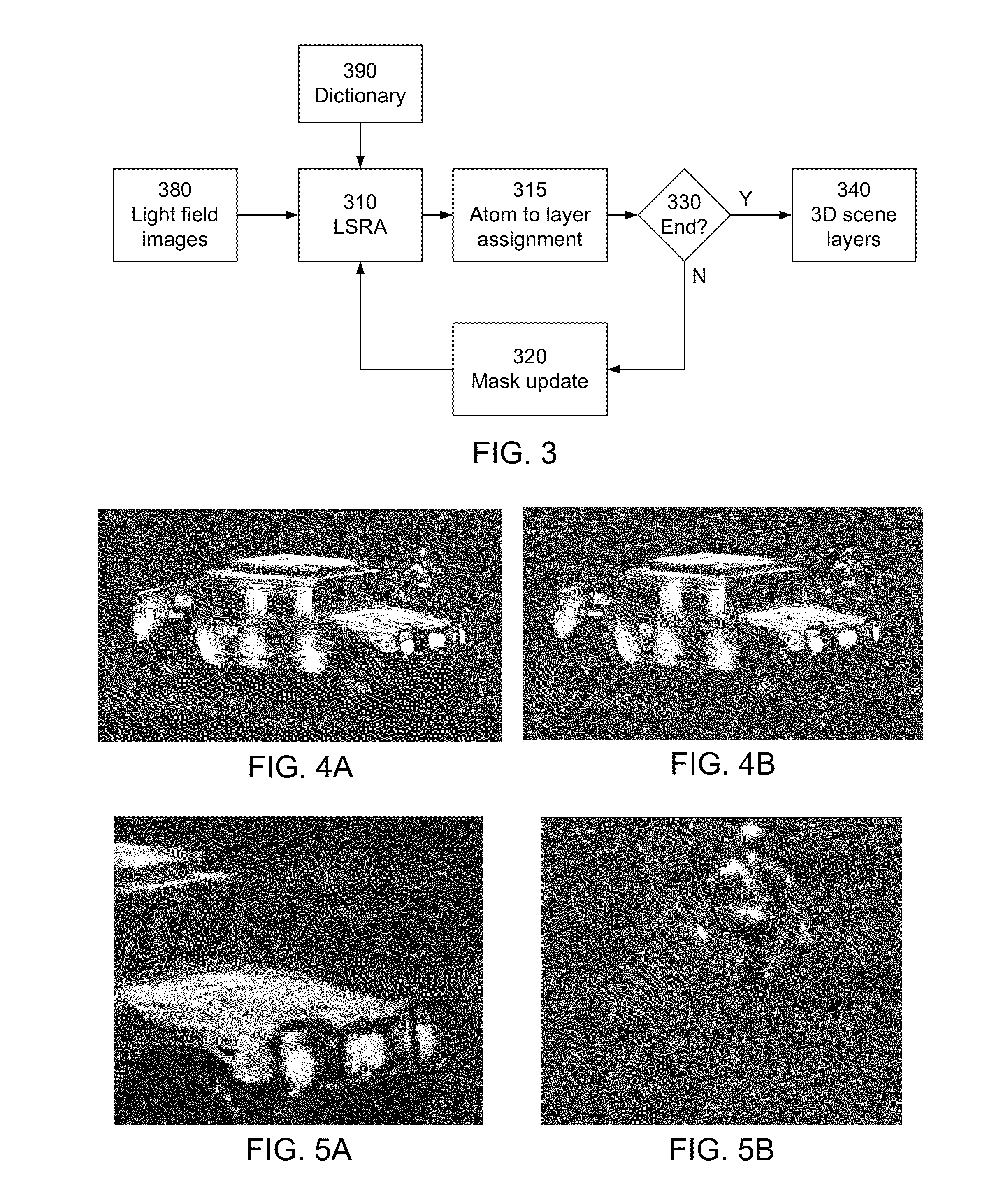Occlusion-Aware Reconstruction of Three-Dimensional Scenes from Light Field Images
- Summary
- Abstract
- Description
- Claims
- Application Information
AI Technical Summary
Benefits of technology
Problems solved by technology
Method used
Image
Examples
Embodiment Construction
[0020]The figures and the following description relate to preferred embodiments by way of illustration only. It should be noted that from the following discussion, alternative embodiments of the structures and methods disclosed herein will be readily recognized as viable alternatives that may be employed without departing from the principles of what is claimed.
[0021]Because of the effect of occlusions, we consider certain prior information on the three-dimensional scene in order to recover the three-dimensional information from the light field. We use sparse priors. These priors assume that a light field image is a linear combination of a few basic functions (called atoms) selected from a large overcomplete dictionary of atoms. However, light rays do not combine linearly around occlusions. Accordingly, we define a nonlinear sparse representation model for light fields. These models are based on layers and masks. The layers correspond to different depths in the scene and the masks de...
PUM
 Login to View More
Login to View More Abstract
Description
Claims
Application Information
 Login to View More
Login to View More - R&D
- Intellectual Property
- Life Sciences
- Materials
- Tech Scout
- Unparalleled Data Quality
- Higher Quality Content
- 60% Fewer Hallucinations
Browse by: Latest US Patents, China's latest patents, Technical Efficacy Thesaurus, Application Domain, Technology Topic, Popular Technical Reports.
© 2025 PatSnap. All rights reserved.Legal|Privacy policy|Modern Slavery Act Transparency Statement|Sitemap|About US| Contact US: help@patsnap.com



